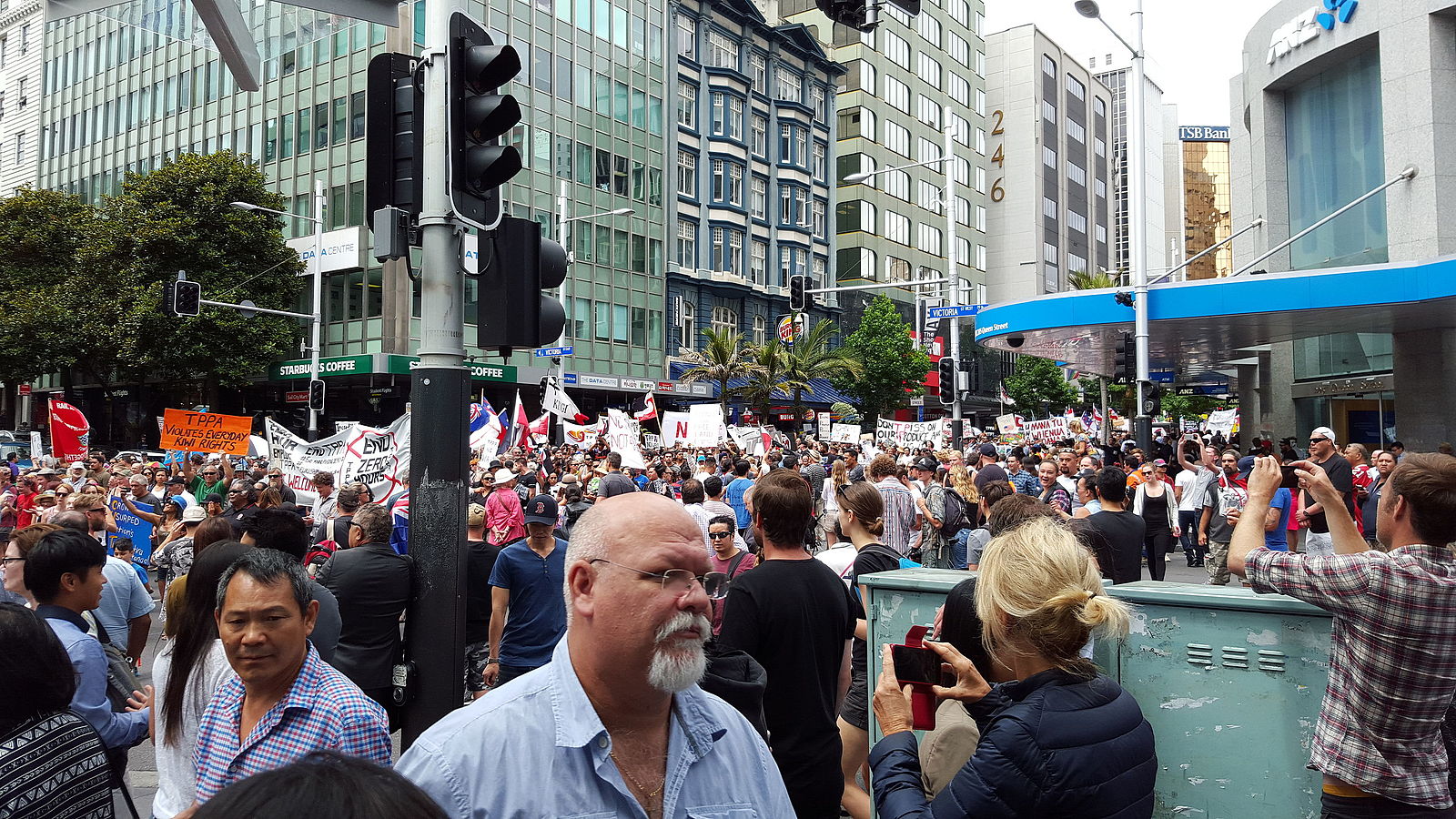Help us protect the commons. Make a tax deductible gift to fund our work. Donate today!
 TPPA Signing Protest in Auckland, by Prosperosity, CC BY-SA 4.0
TPPA Signing Protest in Auckland, by Prosperosity, CC BY-SA 4.0
Last week, the Trans-Pacific Partnership (TPP)—the massive multilateral trade agreement negotiated in secret among government and industry representatives—was signed by officials in New Zealand.
When the final text of the TPP was released in November 2015, we wrote about how the agreement is a direct threat to the public interest and the commons. The provisions around intellectual property are especially problematic. If adopted, the TPP would represent the most sweeping expansion of international restrictions on copyright in over twenty years. It downplays the importance of the public domain and exceptions and limitations to copyright, increases the already-too-long term of copyright protection, and demands harsh infringement penalties. We continue to urge member nations to reject the TPP.
The February 4 ceremonial “signing” came after a few months with little to no public consultation or debate. But simply signing the agreement doesn’t mean it has gone into effect. The road to enactment begins now, as each of the nations involved will attempt to ratify the TPP through their respective political processes.
According to EFF, “the agreement will enter into force either 60 days after all original signatories ratify it or, if that doesn’t happen within two years, in April 2018 if at least six of the 12 countries accounting for 85 percent of the combined gross domestic product of the original signatories have ratified the agreement.”
From Canada to Japan to Chile to the United States, activists in TPP-affected countries are organizing around ways to stop the agreement from taking effect. Ratification is not a foregone conclusion—as we’ve seen before with the massive public support against SOPA/PIPA, ACTA, and other regulation that would harm the public interest and the open web.
There is still time to act against the harmful TPP. In the United States, you can contact your Congressional Representatives and Senators (who will need to vote on the matter after President Obama introduces the TPP legislation to Congress). Tell them to vote NO on the TPP. We’ll also try to highlight ways that advocates in other countries can get involved before those nations complete their ratification procedures.
Together we should combine our efforts and stand united against the TPP. We know it contains sweeping provisions regarding environmental regulation, pharmaceutical procurement, intellectual property, labor standards, and food safety. And over the last five years, it has been developed and negotiated in secret. The TPP and other trade deals need to be developed transparently and with robust public oversight. Otherwise, this and other types of undemocratic, back-room agreements will continue to be a significant and damaging mechanism for global policymaking.
Posted 12 February 2016